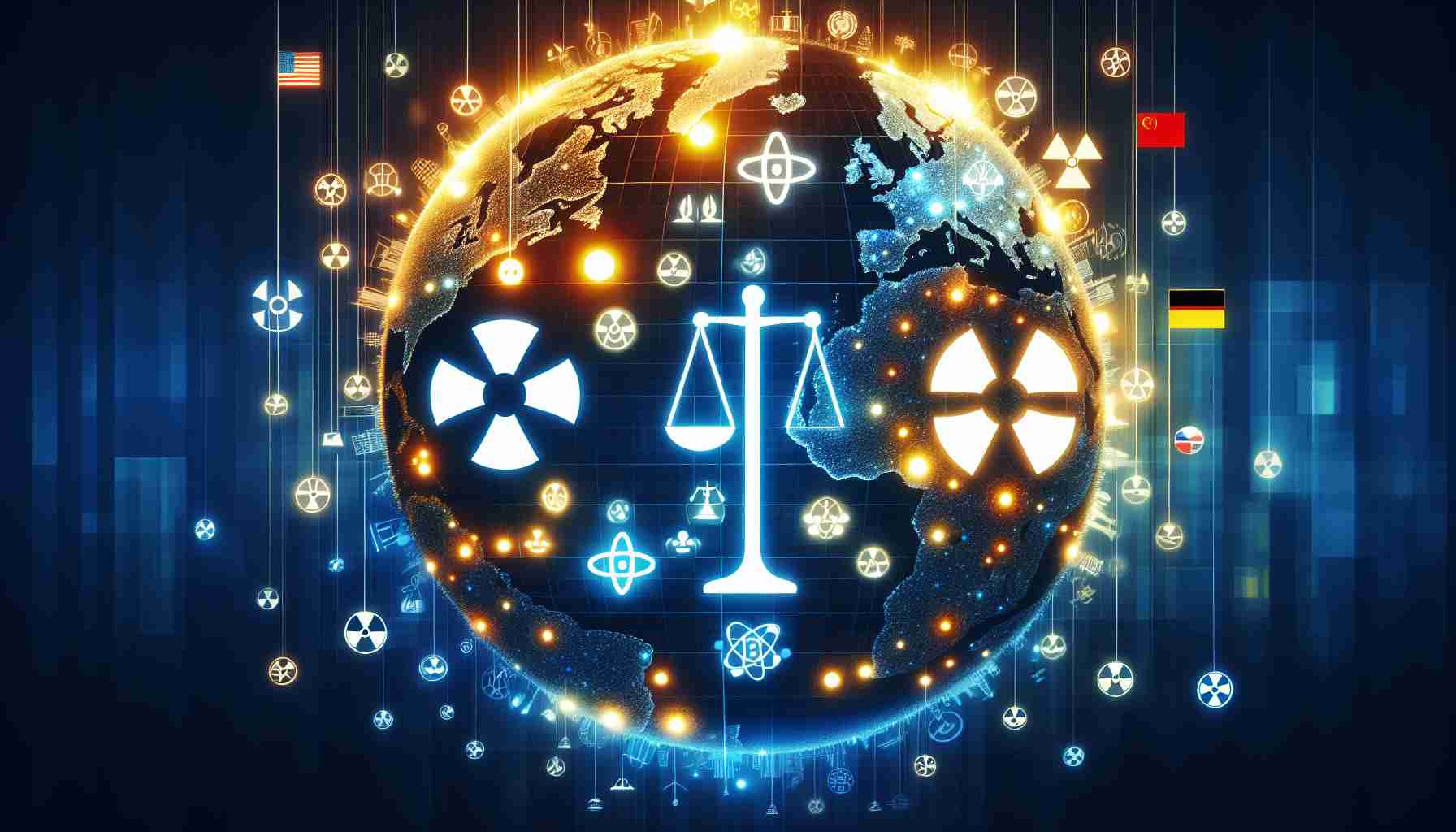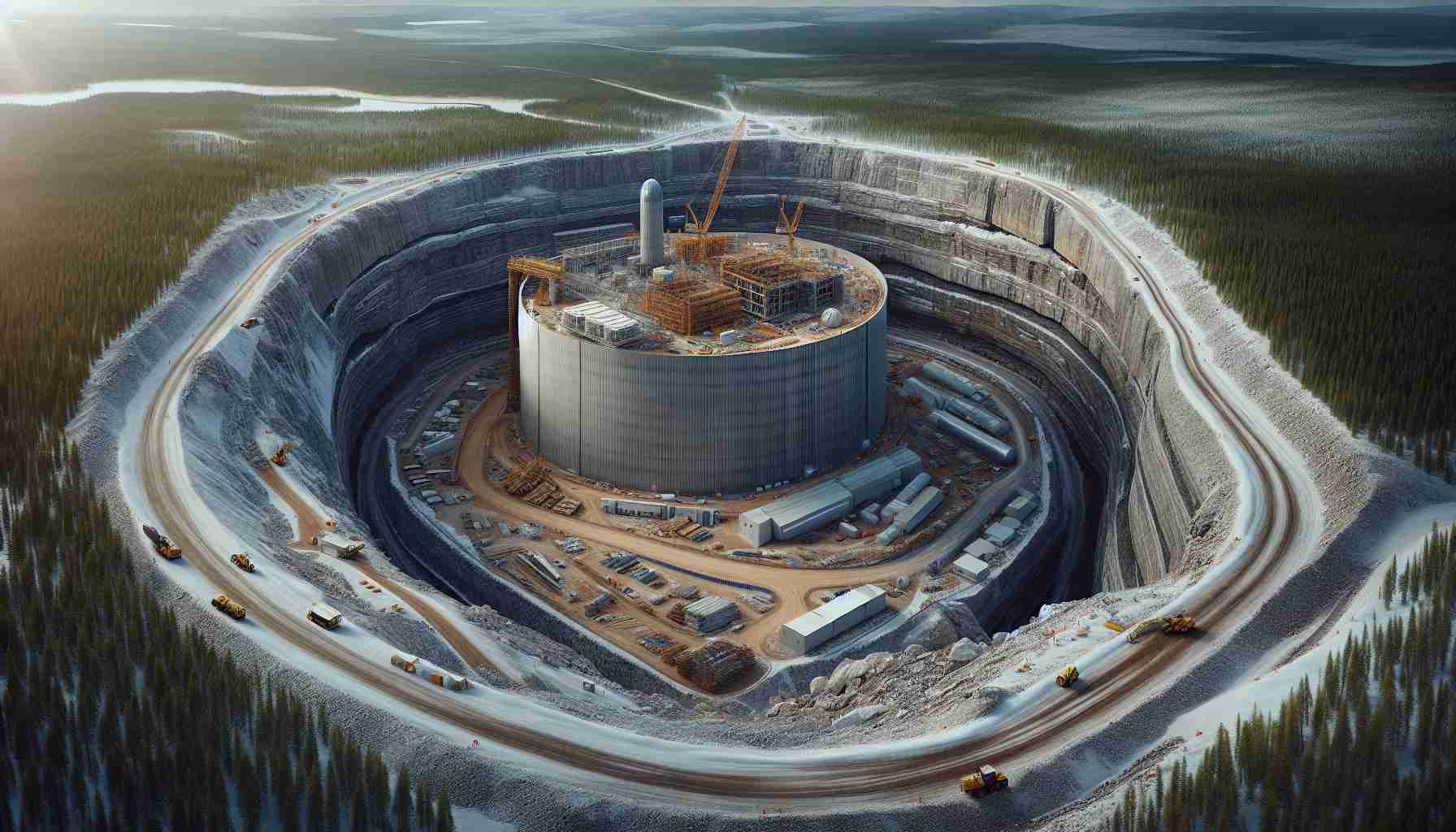- Rosatom is leading global nuclear advancements with cutting-edge reactor projects in regions like Africa, Latin America, and the Middle East.
- Investment exceeds $200 billion, with nearly 40 international projects underway, emphasizing non-Western energy independence.
- Innovative spent nuclear fuel reprocessing in Seversk marks a shift toward a circular nuclear economy.
- Rosatom’s uranium enrichment dominance supports major global players, enhancing its international supply chain status.
- Strategic partnerships, including with Iran, aim to strengthen nuclear capabilities but may escalate geopolitical tensions.
- The global shift to nuclear energy is intensifying, placing Rosatom at the forefront of sustainable energy transformation.
- Rosatom’s initiatives highlight both economic growth opportunities and increased nuclear safety concerns in certain regions.
Russia’s Strategic Leap into Global Nuclear Power
As the world pivots toward cleaner energy solutions, Russia is emerging as a formidable player in the nuclear sector through its state-owned enterprise, Rosatom. With a staggering investment of over $200 billion and ambitious projects across nearly 40 international sites, Rosatom is reshaping the energy landscape, especially outside Western influence, with a focus on Africa, Latin America, and the Middle East.
Highlights of Rosatom’s Nuclear Strategy
*i>Advanced Reactor Development: Leading the charge with cutting-edge reactor technologies, Rosatom is spearheading projects in Uzbekistan and Türkiye. The planned nuclear plant in Türkiye aims to fulfill 10% of the nation’s energy demand, highlighting its strategic significance.
Spent Nuclear Fuel Reprocessing: A world-first facility in Seversk is pioneering the continuous reuse of spent nuclear fuel, exemplifying a leap toward a circular economy in nuclear energy through innovative technology.
Uranium Enrichment Leadership: Recognized globally for its uranium enrichment prowess, Rosatom supplies key nations, including the U.S. and South Korea, strengthening its position in the international nuclear material supply chain.
Strategic Collaborations and Global Impact
Rosatom’s strategy involves crucial partnerships, notably with Iran, to expand nuclear capabilities through new reactor developments. This approach signifies a strong, strategic move to enhance nuclear prowess beyond traditional Western alliances.
The Dual-Edged Sword of Expansion
Advantages: The initiatives present vast economic opportunities, driving job creation and bolstering national energy security by reducing dependence on fossil fuels. Moreover, Rosatom’s focus on advanced nuclear technology underscores sustainability.
Challenges: Collaboration with nations like Iran could heighten geopolitical tensions, particularly with Western powers, and expand nuclear safety concerns in regions with relaxed regulatory norms.
Future Outlook
The global energy sector is witnessing a nuclear renaissance, spurred by the urgent need to cut carbon emissions. Demand for nuclear energy is surging, especially in developing nations, positioning Rosatom to capitalize on this trend and emerge as a leader in the revitalized nuclear era.
Conclusion: A Vision for Sustainable Energy
Rosatom’s ambitious endeavors demonstrate a commitment to sustainability. The innovative use of nuclear technology and the recycling of spent fuel align with global environmental goals, establishing Rosatom as a visionary force in shaping the future of energy.
Russia’s Nuclear Renaissance: Powering the Future or Igniting Controversy?
New Insights into Russia’s Bold Nuclear Strategy
As Russia’s Rosatom surges ahead as a leading force in nuclear energy development, several critical questions arise regarding its expansive global strategy and the implications of its projects. Below are the three most pressing questions concerning Russia’s nuclear ambitions.
1. How Does Rosatom’s Reactor Development Influence Global Energy Markets?
Answer: Rosatom is advancing reactor technologies with significant projects across various countries, notably Uzbekistan and Türkiye. The Akkuyu Nuclear Power Plant in Türkiye, anticipated to meet up to 10% of the nation’s electricity needs, marks a significant shift in regional energy dynamics. These developments are pivotal as they provide alternative energy sources to regions heavily reliant on fossil fuels, ironically positioning Russia as both a supplier of fossil fuels and a leader in nuclear technology.
2. What Are the Potential Risks Associated with Rosatom’s Global Expansion?
Answer: While Rosatom’s global expansion into nuclear projects brings economic growth and energy security, it poses potential geopolitical risks. Partnerships with countries like Iran may exacerbate tensions with Western nations, raising concerns about nuclear proliferation and safety in regions with potentially lax regulatory standards. Such dynamics could lead to heightened diplomatic strains and necessitate rigorous international oversight to ensure safe and peaceful nuclear development.
3. Can Rosatom’s Innovations in Nuclear Fuel Reprocessing Become a Benchmark for Sustainability?
Answer: The facility in Seversk represents a groundbreaking step in nuclear sustainability by enabling the continuous reuse of spent nuclear fuel. This innovation aligns with the global push towards a circular economy, potentially setting a benchmark for sustainable practices in the nuclear industry. If successful on a wider scale, Rosatom’s methods could reduce nuclear waste and improve the environmental footprint of nuclear power, offering a model for other nations to adopt.
Suggested Related Links
Rosatom
International Atomic Energy Agency
Conclusion
Russia’s strategic investments in nuclear power through Rosatom highlight both promising opportunities and contentious challenges. With innovative reactor technologies and sustainability-focused reprocessing methods, Rosatom could lead the charge in transforming global energy markets. However, potential geopolitical and safety concerns underscore the dual-edged nature of Russia’s nuclear ambitions. As the world moves toward low-carbon solutions, Rosatom’s initiatives may either pave a path to cleaner energy or spark further global tensions, warranting close monitoring and cooperation.
The source of the article is from the blog girabetim.com.br















